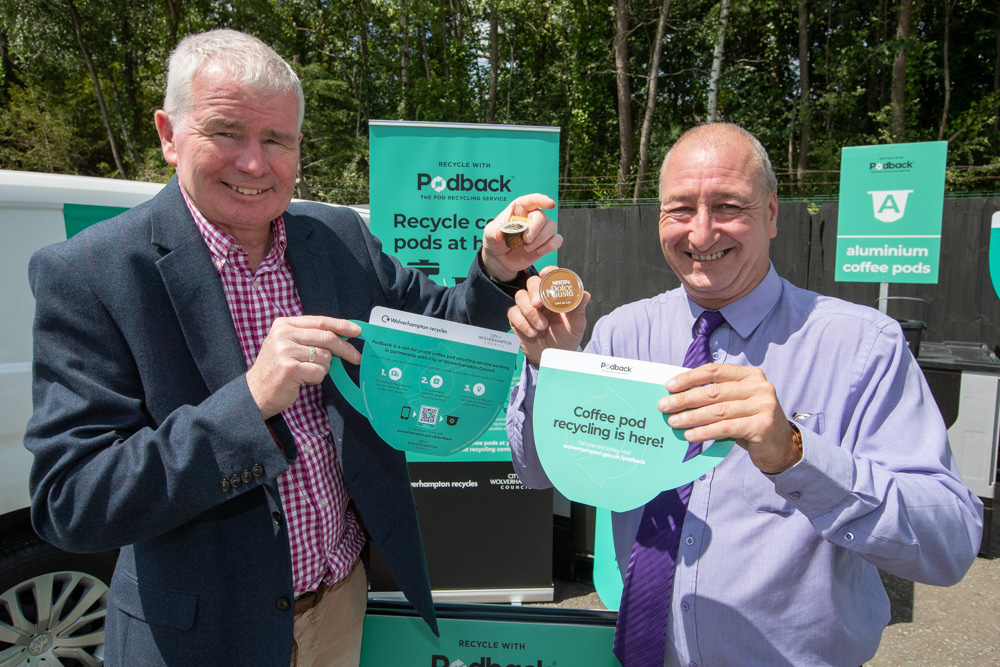The City of Wolverhampton Council is working with Podback, a not-for-profit coffee pod recycling service, to enable residents to recycle their coffee pods at home, as part of a new door to door collection service. Created in partnership with the biggest names in coffee pod systems, Nespresso, NESCAFÉ Dolce Gusto and Tassimo, this new service supports the Council’s aim to reduce waste and achieve carbon savings to help tackle climate change.
The city-wide service has been developed by Podback working in partnership with the recycling team at Wolverhampton. From 11 July 2022, residents will be able to recycle both plastic and aluminium coffee pods at home by registering for a door-to-door collection service. Once registered, residents will be provided with Podback recycling bags, along with a leaflet providing instructions on how to use the scheme. When bags are full, residents simply book a collection via the Council’s website. Residents living in flats can participate by using the Podback Drop Off service. Alternatively, pods can be taken to the Household Waste and Recycling Centres at Shaw Road and Anchor Lane where Podback is providing containers for the collection of aluminium and plastic pods.
Cabinet member for City Environment and Climate Change, Councillor Steve Evans, says: “We are always looking for ways to reduce waste and to recycle more. Together with the changes in working habits, including more people working from home, there has been a growth in the popularity of coffee pods *. So the expansion of our recycling service to collect coffee pods couldn’t come at a better time. Our Podback recycling team will be delivering the bags and managing collections of the pods using an electric vehicle. Podback is funding the service, so it is cost neutral and is an excellent way for us to improve our service to residents.”
Once collected, the coffee pods will be sent to specialist recycling plants within the UK[1]. The plastic and aluminium will be transformed into new products, including packaging, car components and building products, while the coffee grounds will be treated by anaerobic digestion to create soil improver and renewable energy[2] .
Recycling uses less energy than manufacturing from raw materials, saving natural resources and reducing carbon emissions generated by throwing items away in landfill and even incineration.
Podback’s Executive Director Rick Hindley says: “Wolverhampton is the first local authority in the West Midlands to partner with Podback since we launched in 2021. This is the most ambitious scheme to date; both in terms of the services provided and the number of households we are targeting. Together with City of Wolverhampton Council our aim is to make it easier for consumers to recycle their pods at home. We’re excited to launch the service and to be helping the Council increase the amount it recycles.”
*A recent poll found that 23% of households used pods more than once a month.
[1]Aluminium pods are reprocessed at Tandom Metallurgical Group Ltd., near Stoke-on-Trent. Plastic pods are reprocessed by Bright Green Plastics in West Yorkshire.
[2] The coffee grounds are processed by local anaerobic digestion facilities, producing renewable energy (biogas) and soil improver.
